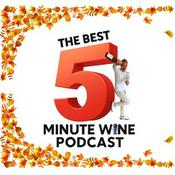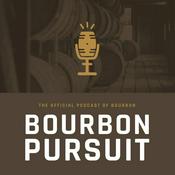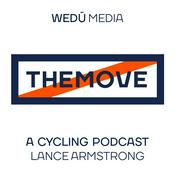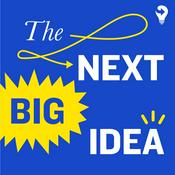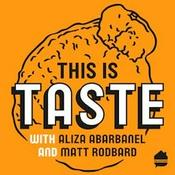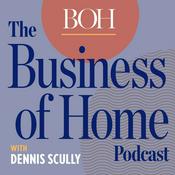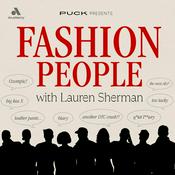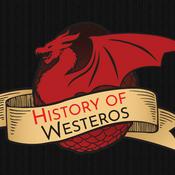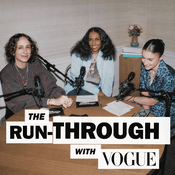Available Episodes
5 of 586
- The Paradox of PleasureAll of us think we know what addiction looks like. It’s the compulsive consumption of drugs, alcohol, or nicotine. But psychiatrist Anna Lembke argues that our conception of addiction is far too narrow — and that a broader view might help us to understand why so many people are anxious and depressed. This week, we revisit a 2023 episode that remains of the most popular in the history of our show. We'll explore how and why humans are wired to pursue pleasure, and all the ways the modern world tempts us with addictive substances and behaviors.Looking for the perfect holiday gift for the Hidden Brain fan in your life? How about a membership to our podcast subscription, Hidden Brain+? You can learn more about gift subscriptions at patreon.com/hiddenbrain/gift. If t-shirts, tote bags and mugs are more your thing, you can find all kinds of Hidden Brain swag at our online store -- just go to shop.hiddenbrain.org. And if you prefer to give the gift of an experience, consider tickets to our live tour! To see where we’re headed in 2026, go to hiddenbrain.org/tour. Thanks and Happy Holidays! Episode image by adriandra karuniawan for Unsplash+ Hosted by Simplecast, an AdsWizz company. See pcm.adswizz.com for information about our collection and use of personal data for advertising.--------51:15
- Murder MysteryWhy are so many of us drawn to horror, gore, and true crime? Why do we crane our necks to see the scene of a crash on the highway? Psychologist Coltan Scrivner says that our natural morbid curiosity serves a purpose. We talk with Coltan about our fascination with tales of murder and mayhem, and what this tendency reveals about our minds.In this episode, you'll learn:*Why there's often a surge of interest in scary entertainment after a violent or tragic incident in the real world. *The potential evolutionary roots of our curiosity about scary events or violent stories.*What researchers have found about the impact of scary movies and books on the people who watch them. *How horror content can be a vehicle for connecting with other people. *What we know about the personality traits of people who are drawn to dark and sinister stories. If you have a question or personal story related to today's episode that you'd be willing to share with the Hidden Brain audience, please record a voice memo on your phone and email it to us at [email protected]. Use the subject line "scary." Looking for the perfect holiday present for the Hidden Brain fan in your life? We've got you covered. Give your loved one a gift membership to Hidden Brain+, or visit our online shop for t-shirts, mugs, totes, and more! Here's another idea: grab tickets for one of our upcoming live shows. We'll be in Philadelphia on March 21 and New York on March 25. Thanks and Happy Holidays!This December, Hidden Brain is proud to join #PodsFightPoverty. We're teaming up with other podcasts to raise funds to lift three villages in Rwanda out of extreme poverty. Your donation goes directly to the families who know best what they need. Visit GiveDirectly.org/HiddenBrain to make a difference for someone who needs it most. Episode image by Riswan Ratta for Unsplash+ Hosted by Simplecast, an AdsWizz company. See pcm.adswizz.com for information about our collection and use of personal data for advertising.--------52:26
- Parents: Keep Out!If you’re a parent or a teacher, you’ve probably wondered how to balance play and safety for the kids in your care. You don’t want to put children in danger, but you also don’t want to rob them of the joy of exploration. This week, we revisit a favorite conversation with psychologist Peter Gray. We'll talk about why independent play is so important to a child's development, and answer listeners' questions about the role parents, schools, and neighborhoods can play in giving kids more autonomy. In this episode, you'll learn: *The skills that children develop when they play without parental involvement. *Why American culture has shifted away from independence for children in recent decades. *The role of independent play in helping children to learn key lessons and thrive developmentally. *The simple question that parents can ask their kids to create space for more unstructured play. *How to know what's age-appropriate when it comes to independent play.*How to foster independent play in your neighborhood or community. *What schools can do to encourage unstructured opportunities for kids. Episode photo by Aisiri Iyengar on Unsplash Hosted by Simplecast, an AdsWizz company. See pcm.adswizz.com for information about our collection and use of personal data for advertising.--------1:18:32
- The Power of Family StoriesThere’s a tradition around many Thanksgiving dinner tables that’s as consistent as pumpkin pie: the family stories that get told year after year. Sometimes these stories are funny; sometimes they make us roll our eyes. No matter how we feel about them, we rarely pause to consider how these stories shape who we are and how we view the world. This week, we revisit a favorite 2024 conversation about family storytelling with psychologist Robyn Fivush. Then, in a new installment of "Your Questions Answered," Massimo Pigliucci answers listener questions about Stoicism, and why this ancient philosophy continues to resonate today.The Los Angeles stop on our live tour is almost here! Join Shankar November 22 as he shares seven key psychological insights from the show's first decade. And we're excited to share new dates for 2026. We'll be in Philadelphia on March 21 and New York City on March 25. More info and tickets here: https://www.hiddenbrain.org/tour/Episode illustration by Anna Kutukova for Unsplash+ Hosted by Simplecast, an AdsWizz company. See pcm.adswizz.com for information about our collection and use of personal data for advertising.--------1:37:05
- Why Following Your Dreams Isn't EnoughEntrepreneurs typically have no shortage of passion, heart, and vision. But at Stanford University, Huggy Rao says there are other elements that may matter more when it comes to whether their projects succeed or fail. This week, we'll examine how this problem shapes not just individual lives, but organizations and businesses, and even public policy. Then, in the latest installment of "Your Questions Answered," sociologist Robb Willer answers listener questions about how to navigate political differences with the people in your life. The Los Angeles stop on our live tour is almost here! Join Shankar November 22 as he shares seven key psychological insights from the show's first decade. And we're excited to share new dates for 2026. We'll be in Philadelphia on March 21 and New York City on March 25. More info and tickets here: https://www.hiddenbrain.org/tour/Episode art courtesy of Graphicook Studio for Unsplash.com. Hosted by Simplecast, an AdsWizz company. See pcm.adswizz.com for information about our collection and use of personal data for advertising.--------1:30:07
More Arts podcasts
Trending Arts podcasts
About Hidden Brain
Why do I feel stuck? How can I become more creative? What can I do to improve my relationships? If you’ve ever asked yourself these questions, you’re not alone. On Hidden Brain, we help you understand your own mind — and the minds of the people around you. (We're routinely rated the #1 science podcast in the United States.) Hosted by veteran science journalist Shankar Vedantam.
Podcast websiteListen to Hidden Brain, Articles of Interest and many other podcasts from around the world with the radio.net app

Get the free radio.net app
- Stations and podcasts to bookmark
- Stream via Wi-Fi or Bluetooth
- Supports Carplay & Android Auto
- Many other app features
Get the free radio.net app
- Stations and podcasts to bookmark
- Stream via Wi-Fi or Bluetooth
- Supports Carplay & Android Auto
- Many other app features


Hidden Brain
Scan code,
download the app,
start listening.
download the app,
start listening.


